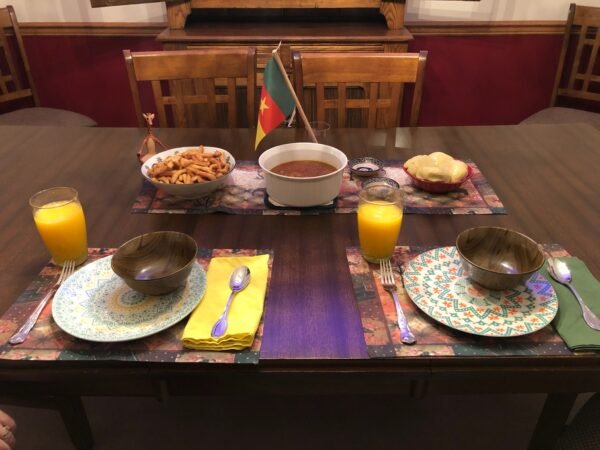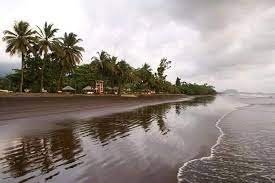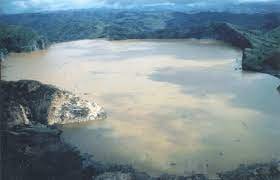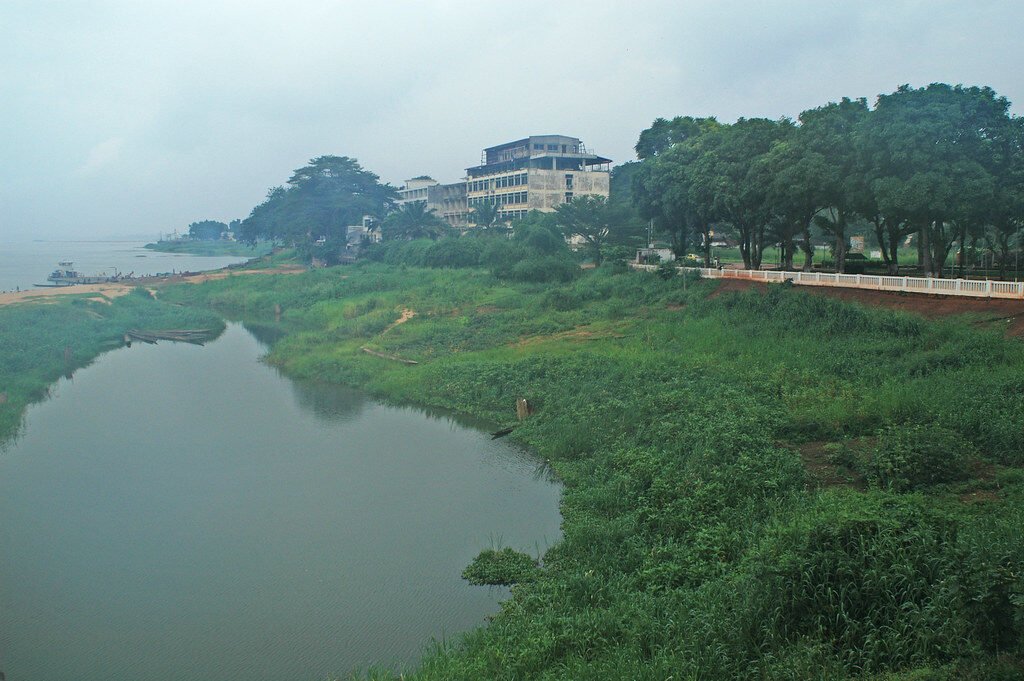Our Cameroon meal consisted of Cameroonian Fish Stew, Corn Fufu, Chin Chin, and Mango Daiquiris. The fish stew turned out a little salty. The recipe called for Maggi Seasoning cubes which we substituted with chicken bouillon and miscalculated the amount. Regardless, the stew was tasty and healthy, so we plan to make it again. The Corn Fufu was dough balls that you pull apart and put into soups, etc. It didn’t have much flavor on its own but was good when added to the fish stew (and helped cut down the saltiness of the stew). Chin Chin made us think of French fry-shaped cookies. They were crunchy, just a little sweet, and flavored with orange zest and nutmeg. Addictive. The mango daiquiris were delicious.
Cameroon’s name came from the Portuguese word ‘o camarão’ which means shrimp. In 1472 a Portuguese sailor named Ferdanando Poo discovered so many shrimps in the Wouri river that he decided to call it Rio Dos Camaroes (river of shrimp). The Spanish spell it Cameroes; Germans, Kamerun; English, Cameroon; and French, Cameroun.
Cameroon is a country in Central Africa that is sometimes called “Miniature Africa” because it has so many cultures and languages, beaches, deserts, mountains, rainforests, and savannas. It looks beautiful! Yaoundé, the capital of Cameroon has some beautiful buildings built using designs inspired by indigenous patterns. Because only about 10% of the roads are paved many of the towns have little airstrips to receive mail and packages.
Cameroon still has active volcanoes and is home to two of only three known exploding lakes in the world. The lakes have magma under them and can release huge puffs of carbon dioxide that kill anything in the area. in 1986, Lake Nyos exploded killing 1,700 people and 3,000 animals.
Since October of 2017, there has been a civil war in Cameroon between the government and separatists from the 20% English-speaking minority who report discrimination and exclusion. The conflict has led to over 4,000 civilian deaths and more than 712,000 displaced persons from English-speaking regions. More than 1.3 million people need humanitarian assistance. These numbers vary based on the source.
It is so hard to read about the conflict and struggles of some countries and always makes me think, what can I/we do? Sure, we can donate money but to who, and will it really be spent to help the people or the cause?



Gashaka Gumti National Park 
Beach in Limbe 
Waza National Park 
Waza National Park 
Waza National Park 
Mountains Around Poli Cameroon 
Yaoundé – Capital of Cameroon 
Lake Nyos – exploded in 1986 
Ekom-Nkam Falls 
Musgum Mud Huts 


